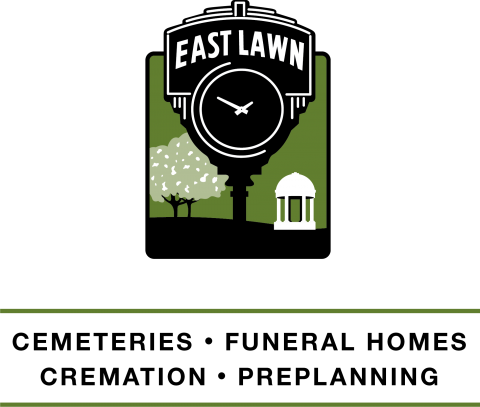It was a warm June afternoon when I first saw the boy. He must have been seven years old and he walked sedately from the gate at the old Sacred Heart School. When he reached a waiting Volvo he stopped, threw his arms into the air and twirled. He did a little dance out there on the hot sidewalk and it stopped me, charmed me. I knew what I was seeing, and I saw another kid there in his dance, a girl from a long time ago, who wore pigtails and walked primly until there wasn’t a nun in sight, then burst into flight, and raced down the elm and sycamore shade of H street into a perpetuity of freedom–a Sacramento summer.
What a luxury, those big summers. The long days fattened, bestowed time to ride bikes and roller skate and build forts in the empty lot 42nd and D. It was all about time, an infinity of cool mornings and those drowsing afternoons tumbling gently, no end in sight, freedom sprawling forever. I remember that the girl turned her calendar against the wall so she wouldn’t have to be reminded of September, and told her mother, “I’m so happy I might burst into fragments.” And her mother, a redhead who did not like summer, who wore a floppy sunbonnet and gloves when hanging clothes in the back yard, would not dilute the girl’s rapture, and said, always, “Yes, this is going to be a long one.”
I saw the boy again a year later. July. He sat at a table in the kid’s section of McKinley Library, turning the pages of a tall, outer-space pop-up book. There was a stillness about him and his dark hair drooped over one eye. His absorption in the book recalled the girl again, padding barefoot to this very library, her card clutched in her hand, half skipping, crossing the streets on the white lines which didn’t sting like the boiling asphalt. McKinley Library was salvation. Because by mid July the afternoons hung long and heavy in the dead air. The adults all said the same thing–at least it’s a dry heat. But it was cool in the library and there lay a world of promise. She’d go home and read the afternoons away, sometimes in the top bunk with a mound of red grapes on her chest, sometimes in a special perch in the apricot tree in the back yard. School was out but books were in. And this wasn’t reading for pleasure, this was reading for joy–Zane Gray, Louisa May Alcott, the Nancy Drew mysteries, and when she got older, Charles Dickens and Mark Twain. The boy is growing up to different summers, with TV and the Internet, but there he was in the library the next year also, and the year after, so somebody was making sure he didn’t miss the adventure.
One year I saw a lot of him. He was learning to skateboard and one sweet, delta-breeze night at Pops in the Park he took a tumble. One of the people who ran to him was the woman who waited for him in the Volvo that first day at Sacred Heart.
I went one August afternoon to the farmers market with a widely traveled friend. He said that Sacramentans live in a paradise of backyard gardens and fruit trees, and described how he had once waited in a Warsaw Pact country for two hours to pay the equivalent of $30.00 for 5 lbs of scrawny bananas. “You have this productive soil here,” he said. “You’re a fertile crescent. You’ve got your two big rivers, your Mediterranean climate. You’re rich.” The woman next to us turned around and said, “Yes. We are,” and I recognized her–the boy’s mother. So now we got to meet and have a neighborly chat and I learned that the boy was on a swim team, lounged in the hammock with his laptop most afternoons after practice, was destined for the McClatchy High School HISP program, was a good kid, still read books, and not just Harry Potter.
The next year I saw him hanging out with friends by the golden bears at the State Fair. It was a muggy, September twilight that made everyone pine for the old dry heat. He was taller than I now, wore trendy shades, chugged down a Gatorade, talked to girls. He gave me a slight nod. I passed through the turnstile and indulged in a feast of recollections that included, of course, a particular girl’s first non-family trip to the fair. She had become cool that particular summer, too cool to go places with her parents, too cool for cotton candy, too cool to show enthusiasm. And way too cool to admit that she missed the way her mother loved the flower show and her father marveled at the gargantuan Clydesdale horses that trotted by the Counties building. That was the long hot summer of coolness, hard on everybody.
I don’t see the boy anymore. He’s a young man now, gone away to college in the Bay Area. I wonder if he likes the weather there, the fog, the overcast. Probably he does. It’s brisk and exhilarating. But I’m guessing that now and then he might look out a dorm window on a chill day and wish for a moment to be somewhere else, back in time, back in that hammock maybe, in swim trunks and sun block, swaying lazily, his book on the grass beneath him, his eyes closing, the Sacramento day going on forever.
Pat Lynch

















 Subscribe In A Reader.
Subscribe In A Reader. Check Us Out On Facebook!
Check Us Out On Facebook! Check Us Out On Twitter!
Check Us Out On Twitter! Visit Nextdoor!
Visit Nextdoor!








